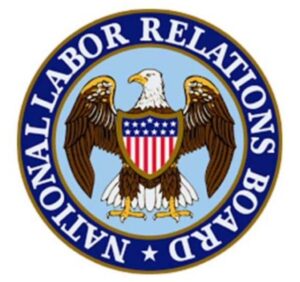New NLRB Joint-Employer Rule Temporarily BLOCKED
by Paul Devlin

The recent ruling by a federal judge in Texas to block the new joint-employer rule proposed by the National Labor Relations Board (NLRB) has stirred significant discussion and analysis within legal and business communities. The crux of the judge’s rationale, as reported by multiple sources including SHRM, Fast Company, Reuters, The National Law Review, Fisher Phillips, NLRB’s official site, Law.com, AP News, and Restaurant Business Online, revolves around the broadening of the criteria for determining joint employer status, which the court found to be in violation of federal labor law.
Rationale Behind the Ruling
The judge’s decision to vacate the NLRB’s rule is grounded in the belief that the new standard for determining joint employer status was unlawfully broad. Under the proposed rule, an entity could be deemed a joint employer based on “indirect control” over the workers of another company, rather than the previous “direct control” standard. This shift aimed to make it easier for employees to hold multiple entities accountable for labor law violations, thereby impacting unionization efforts and collective bargaining processes.
Direct Control vs. Indirect Control Standard
The “direct control” standard requires that a company have actual, direct, and immediate authority over essential terms and conditions of employment, such as hiring, firing, discipline, supervision, and direction of employees. This standard is relatively clear-cut and allows businesses to understand their liabilities and responsibilities within traditional employer-employee relationships.
Conversely, the “indirect control” standard proposed by the NLRB would have expanded this definition to include potential control or influence over another company’s employees, even if that control is not exercised directly. This could encompass contractual arrangements or business practices that indirectly affect the terms and conditions of employment.
Potential Implications
For employers, particularly those operating within franchise models or using contractors, the broader joint employer rule could have significantly increased liability and operational complexities. Businesses might have faced greater challenges in maintaining flexible and efficient workforce arrangements.
Employees stood to gain increased protections and bargaining power under the broader rule, as it would potentially make it easier for them to unionize and hold multiple employers accountable for labor violations.
The economy could have experienced mixed effects. While enhanced worker protections and bargaining power could lead to improved wages and working conditions, the increased regulatory burden on businesses might have stifled entrepreneurial activity, especially among small businesses and startups vulnerable to heightened operational costs. We’ll keep you posted as and when a final decision is made.
This article does not constitute legal advice. For more information please reference related articles in your APlus HR resource center or ask your legal counsel for official guidance.



